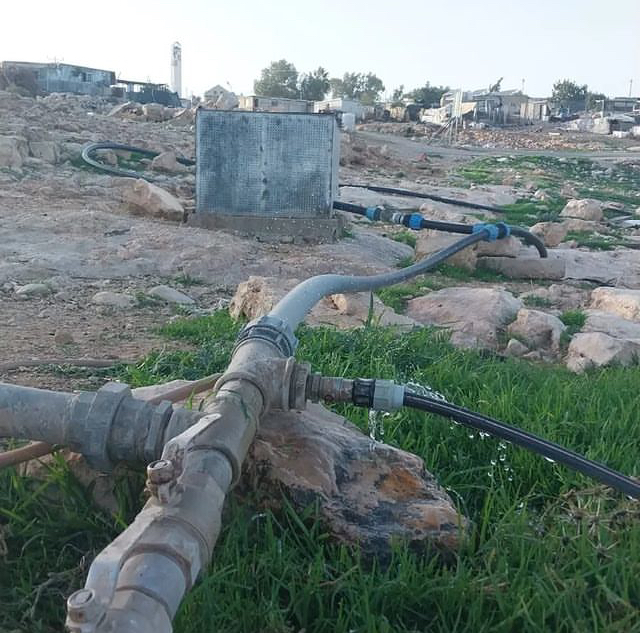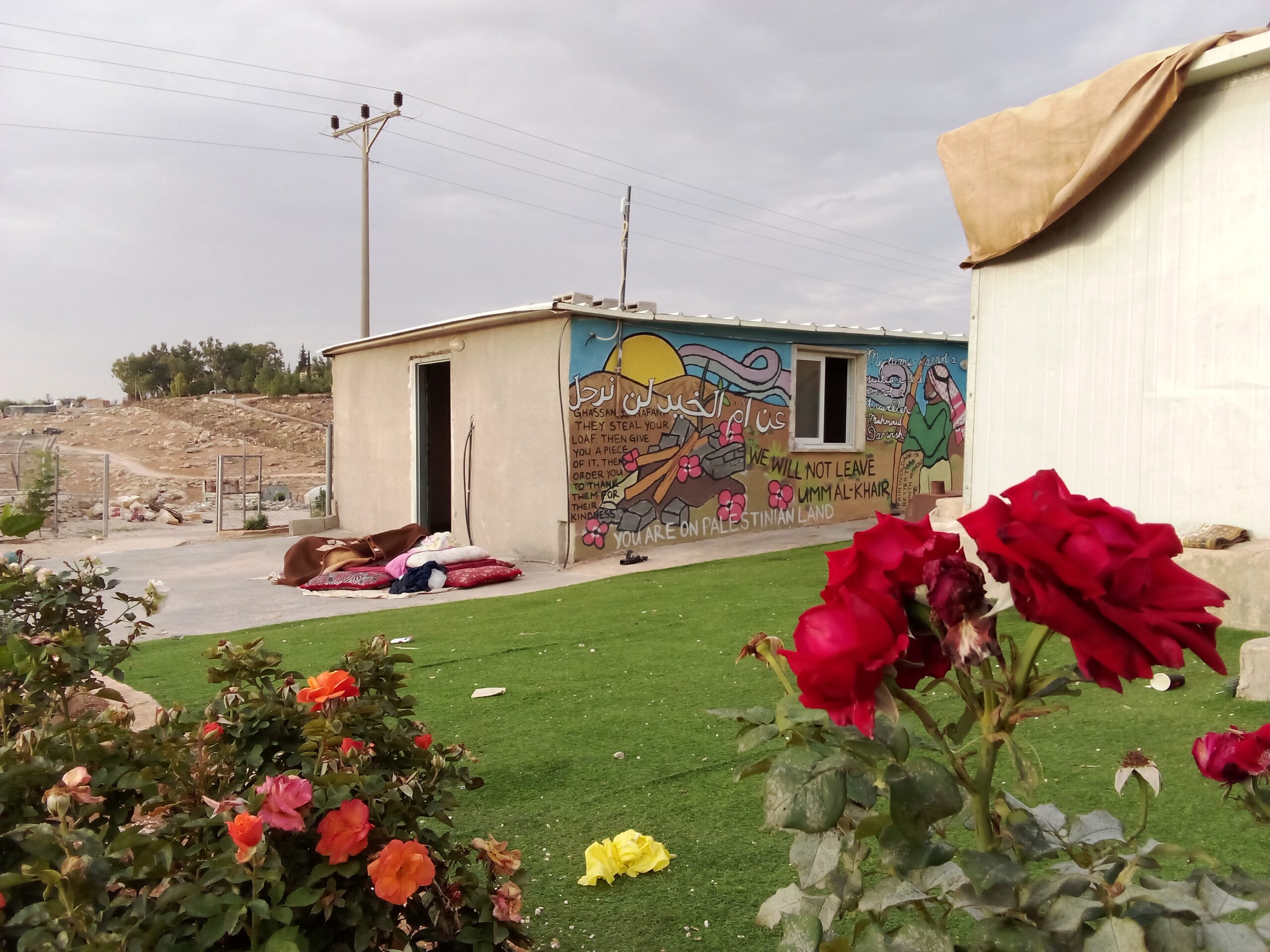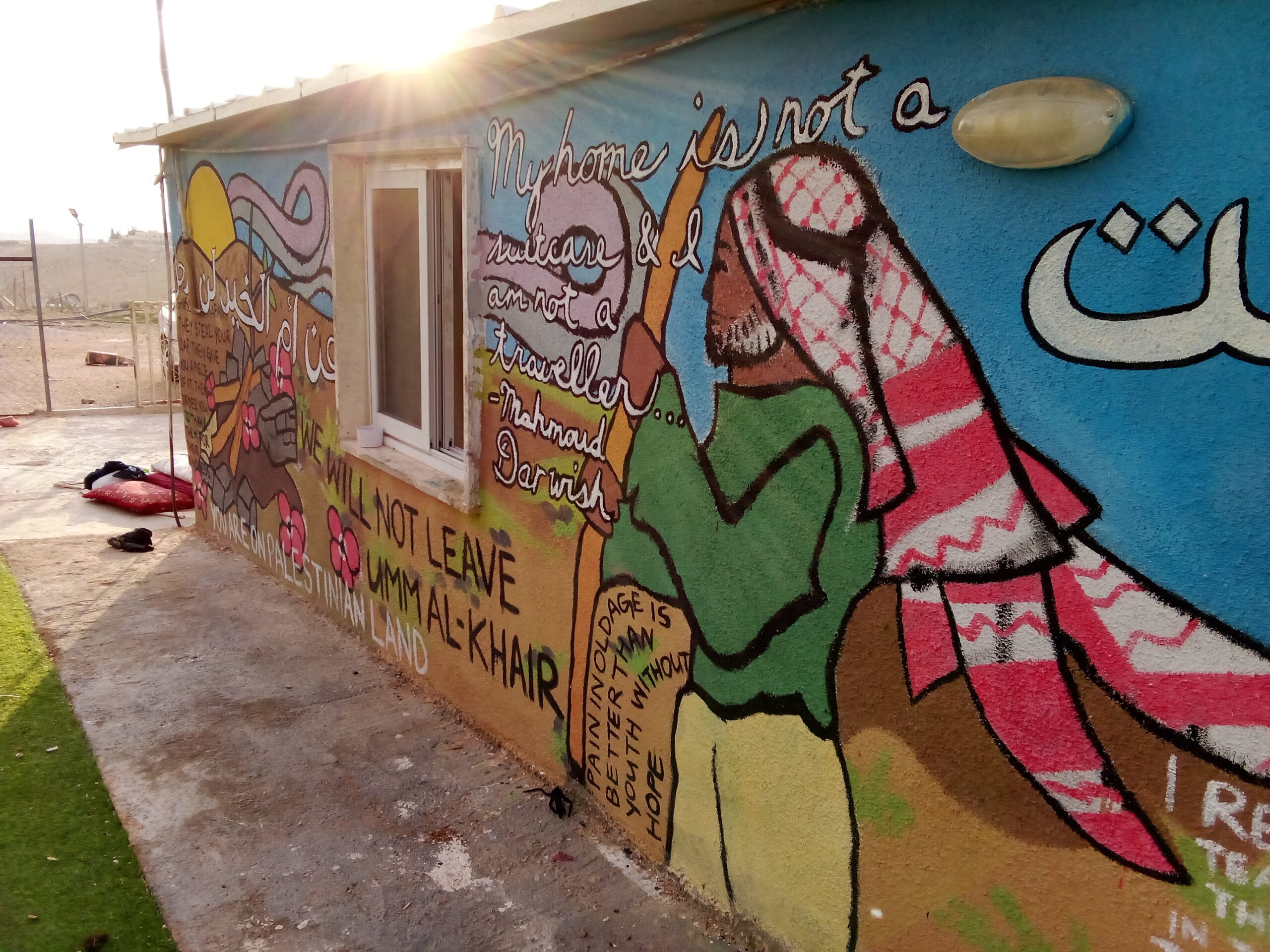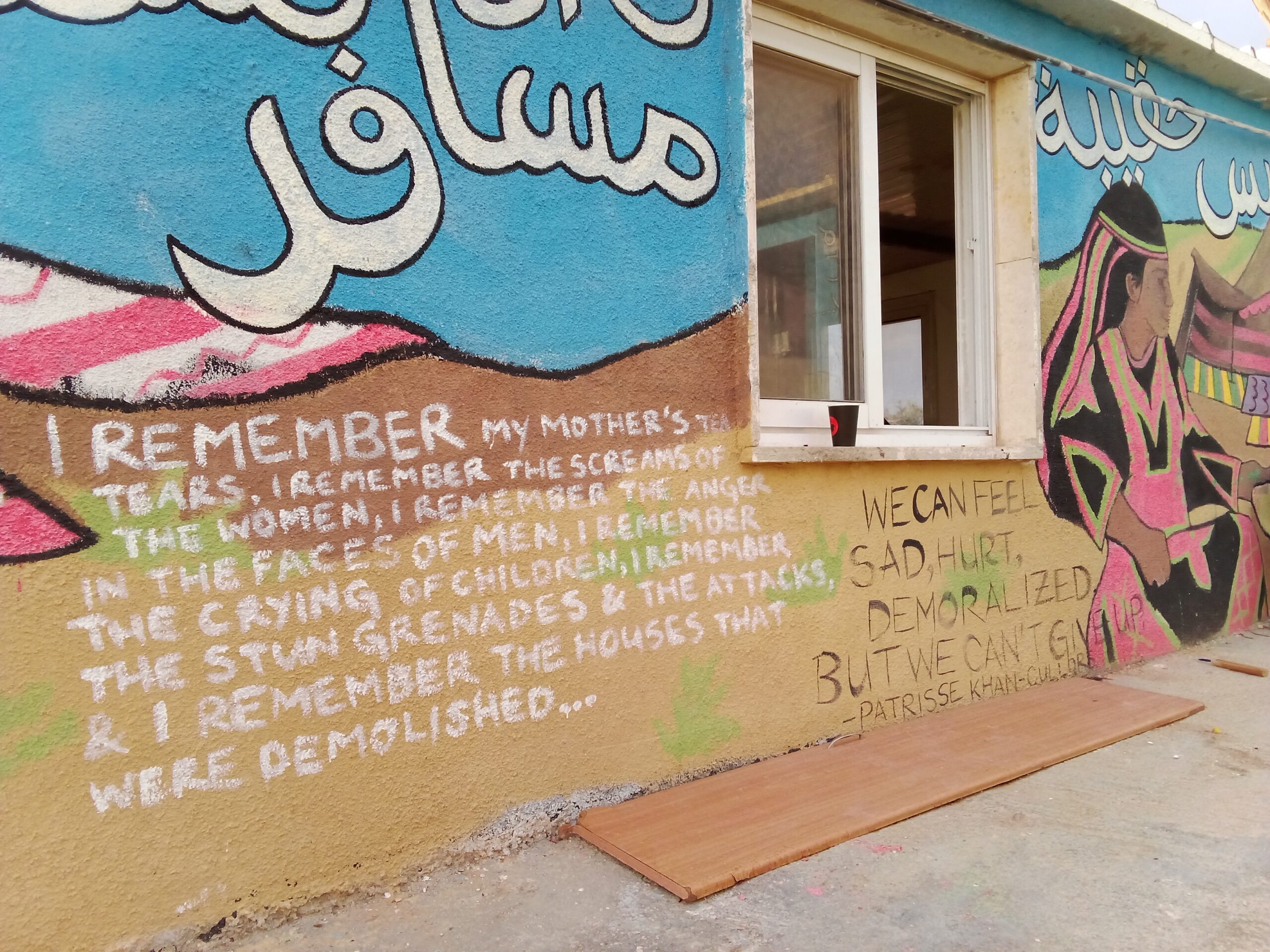Villagers in Um Al-Khair have been repeatedly prevented from bringing their sheep to graze on the outskirts of the village. In one such recent incident, settlers attacked the Palestinian shepherds, and together with Israeli police and civil administration officials claimed that the village’s water infrastructure was on settler land, and threatened that the residents of Um Al-Khair would be prevented access.

Umm al-Khair is a small Bedouin herding community. Its history is woven with the history of Palestine. Its Bedouin villagers were forced to flee their ancestral lands in 1948, a forced ethnic cleansing known as the Nakba, a word in Arabic analogous to the Hebrew Shoah, both meaning catastrophe. These refugees resettled in Um Al-Khair: “the good place”.
Within meters of Um Al-Khair lies Carmel, an illegal Israeli settlement began in 1980 and 1981. Um Al-Khair is now surrounded on three sides by the settlement, described as a “green oasis that looks like an American suburb”. Meanwhile, in stark contrast, over 100 homes, many simple tin structures, have been demolished by the Israeli Army in Um Al-Khair, a village of mostly children and youth.
Um Al-Khair is a village of artists and poets, who have continually rebuilt from the ruins.



Like many nearby Palestinian communities it is threatened with complete erasure. The water network now threatened is the only source of water for the people of Um Al-Khair.
In the words of one resident of the village, “I really do not understand what this damned hatred is. Why are people being fought by cutting off their water, and breaking the water network?… Water is a right for everyone… No one can live without water, so why are we always the ones who suffer? Isn’t it enough to attack us? Isn’t it enough to demolish our homes? Isn’t it enough to prevent us from obtaining electricity? Isn’t it enough to confiscate our lands? Cutting off water networks is a shameful and scandalous crime. I really wonder when the settlers will cut off our air? If they can, they will.”
